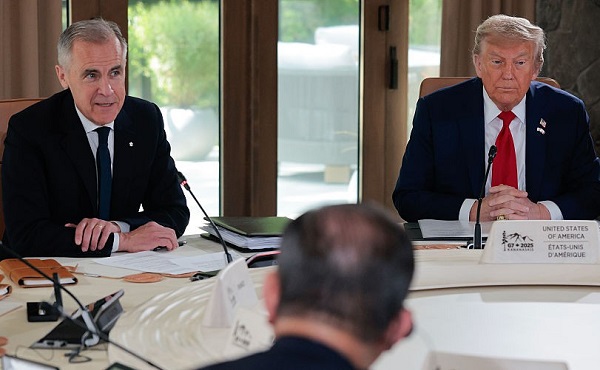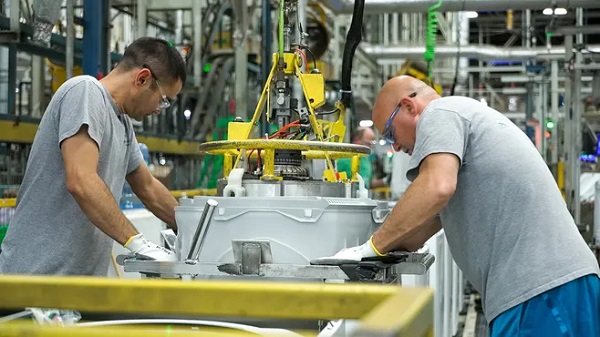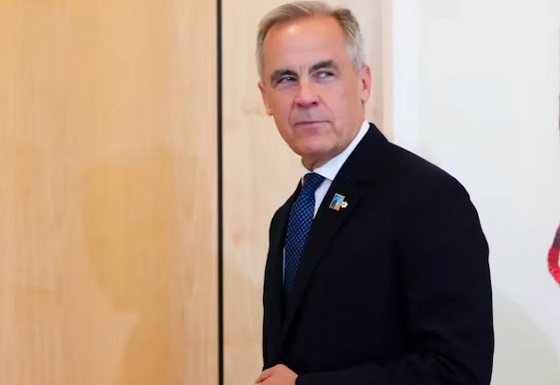Business
China still squeezing rare-earth exports despite U.S. pact

Quick Hit:
Weeks after agreeing to ease restrictions, China continues to stall rare-earth magnet exports, causing Western manufacturers to scramble for critical components and raising fears that Beijing is weaponizing its supply chain leverage.
Key Details:
- Applications for rare-earth magnet exports are being delayed or denied despite a U.S.-China agreement to resume trade.
- Western firms report that supply remains critically low, with some forced to redesign products or ship components by air to avoid shutdowns.
- China’s approval process demands sensitive commercial data, fueling concerns of industrial espionage and political pressure.
Diving Deeper:
Despite pledging to ease export restrictions on rare-earth magnets in a deal with the United States earlier this month, China continues to strangle the flow of these critical components, leaving Western industries on edge and trade tensions simmering.
Western companies say the situation has barely improved since China’s Ministry of Commerce promised to accelerate export license approvals. In practice, approvals remain rare, applications take weeks to process, and many are outright rejected. The bottleneck is hitting manufacturers hard—particularly automakers and electronics producers—who rely on China’s near-monopoly of the world’s most powerful rare-earth magnets.
“It’s hand to mouth—the normal supply-chain scrambling that you have to do,” said Lisa Drake, Ford’s VP of industrial planning for EVs. Though she acknowledged some improvement, she made clear the shortages are forcing operational gymnastics to avoid production halts.
The restrictions stem from export controls Beijing implemented in April, shortly after President Donald Trump imposed heavy tariffs on Chinese goods. While China claimed the license system was meant to regulate military-use exports, the real-world effect has been a sharp drop in rare-earth magnet shipments to the U.S.—down 93% in May compared to last year.
Although the White House announced that China had agreed to resume exports in exchange for reduced U.S. restrictions on certain American goods, the ground reality tells a different story. Export licenses are now limited to six months, and applicants must submit highly sensitive commercial details—such as magnet integration designs and buyer contacts—raising red flags for many Western firms. When companies decline to provide such data, licenses are often denied or stalled for 45 days or more.
“Yes, the export restrictions have been paused on paper. However, ground reality is completely different,” said Neha Mukherjee of Benchmark Mineral Intelligence, citing chronic bureaucratic delays.
Chinese officials claim they’ve approved “a certain number” of licenses, but industry insiders say approvals favor large, state-backed magnet companies. Smaller Chinese producers are suffering under the export squeeze and some are trying to collaborate with foreign buyers to bypass restrictions—such as promoting less-powerful magnets not subject to the controls.
However, these substitutes are often inadequate for high-performance applications like automotive motors, AI servers, and defense systems. Some manufacturers have begun redesigning their products, while others are resorting to expensive airfreight to keep assembly lines alive. As one U.S. importer put it, “These are the things you don’t hear about, how much money it is taking to keep these factories running, you know, limping along.”
Meanwhile, Europe is growing more vocal. Germany’s top industry association recently called on its government to challenge Beijing’s tactics, warning that “licensing procedures must not be used as a means of exerting political pressure.”
All signs point to a calculated effort by Beijing to maintain leverage over the West—despite public commitments to ease trade. With China controlling 90% of global supply for these crucial materials, the U.S. and its allies are now forced to confront a familiar truth: when it comes to rare earths, China holds the cards, and it’s not afraid to play them.
Business
Trump announces end to trade negotiations with Canada over costly digital service tax

From LifeSiteNews
Donald Trump made the announcement Friday, citing frustration with Canadian tariffs on U.S. dairy products and its newly-enacted digital services tax.
U.S. President Donald Trump announced Friday an immediate halt to trade negotiations with Canada, citing frustration with Canadian tariffs on U.S. dairy products and its newly-enacted digital services tax.
Starting June 28, Canada’s digital services tax imposes a 3 percent tax on revenue from “[c]ertain digital services that rely on engagement, data, and content contributions of Canadian users” and “[c]ertain sales or licensing of Canadian user data.”
The Albany Times Union notes that the tax would apply to companies such as Amazon, Google, Meta, Uber, and Airbnb, but most critically from an American perspective “will apply retroactively, leaving U.S. companies with a $2 billion U.S. bill due at the end of the month.”
On Friday afternoon, Trump took to Truth Social to declare, “We have just been informed that Canada, a very difficult Country to TRADE with, including the fact that they have charged our Farmers as much as 400% Tariffs, for years, on Dairy Products, has just announced that they are putting a Digital Services Tax on our American Technology Companies, which is a direct and blatant attack on our Country.”
“They are obviously copying the European Union, which has done the same thing, and is currently under discussion with us, also,” the president continued. “Based on this egregious Tax, we are hereby terminating ALL discussions on Trade with Canada, effective immediately. We will let Canada know the Tariff that they will be paying to do business with the United States of America within the next seven day period. Thank you for your attention to this matter!”
🚨 HUGE: Trump announces IMMEDIATE END to trade negotiations with Canada’s. Tariffs to be announced within 7 days.
📸 Screenshot says it all 👇 pic.twitter.com/v0SefdB2MM— John-Henry Westen (@JhWesten) June 27, 2025
The United States currently imposes a 25 percent tariff on goods deemed not compliant with the United States-Mexico-Canada Agreement (USMCA), the trade agreement Trump negotiated in his first term to replace NAFTA; a 10 percent tariff on USMCA non-compliant energy products; and a 10 percent tariff on USMCA non-compliant potash.
Politico reports that Trump and Canadian Prime Minister Mark Carney had previously set a July 16 deadline for a new trade agreement, under which it was hoped that existing tariffs would be lifted. Instead, onlookers are now bracing to see what new tariff rates will be.
The tariffs on Canada are part of the Trump administration’s broader series of varying tariffs on most other nations (which have been adjusted, lifted, and delayed at various points over the past several months). Supporters say the trade war is necessary to make international trade fairer and spur a return of domestic manufacturing; opponents argue they increase costs on American consumers and small businesses.
Business
TRUMP TARIFFS: GE Appliances brings washer manufacturing back from China

Quick Hit:
GE Appliances is reshoring its washer manufacturing operation from China to Louisville, Kentucky in a $490 million move expected to create at least 800 new jobs.
Key Details:
- The company will relocate production of more than 15 washer models to its sprawling Appliance Park campus in Louisville, where it already builds top-load washers and dryers.
- GE Appliances expects to hire at least 800 full-time employees as part of the expansion, which will add the equivalent of 33 football fields of production space.
- CEO Kevin Nolan said the move aligns with the “current economic and policy environment” and reflects a broader strategy to “make appliances as close as possible to our customers.”
Diving Deeper:
GE Appliances announced Thursday it will move most of its washer production out of China and bring it home to the U.S., investing nearly half a billion dollars in expanding its Appliance Park operations in Louisville, Kentucky. The strategic reshoring decision comes as U.S. policy increasingly favors domestic manufacturing and as companies respond to shifting global supply chain realities.
“With this investment, we are bringing laundry production to our global headquarters in Louisville because manufacturing in the U.S. is fundamental to our ‘zero-distance’ business strategy,” said GE Appliances President and CEO Kevin Nolan. “This decision is our most recent product reshoring and aligns with the current economic and policy environment.”
The $490 million investment will focus on Building 2 at Appliance Park, where more than 15 new washer models will be assembled, significantly boosting the company’s clothes care footprint. The added capacity brings GE’s total laundry production space at the Kentucky facility to the size of 33 football fields.
“This move puts our production closer to our designers, engineers and consumers so we can build our most innovative laundry platforms right here in the U.S.,” said Lee Lagomarcino, vice president of clothes care at GE Appliances.
Kentucky Governor Andy Beshear applauded the decision, calling it a major boost for the state’s manufacturing base. “This investment strengthens one of our vital Kentucky assets and underscores our state’s reputation as America’s destination of choice for advanced manufacturing and job creation,” Beshear said.
The reshoring announcement follows a broader trend under President Donald Trump’s economic agenda, which includes imposing tariffs to incentivize companies to relocate production back to American soil.
Appliance Park currently employs roughly 8,000 workers and has been the centerpiece of the company’s U.S. operations. Over the last 10 years, GE Appliances has invested $3.5 billion into domestic manufacturing, with facilities in multiple states. The company says the washer production shift to Kentucky will be completed by 2027.
-

 MAiD1 day ago
MAiD1 day agoCanada’s euthanasia regime is not health care, but a death machine for the unwanted
-

 Alberta1 day ago
Alberta1 day agoAlberta’s government is investing $5 million to help launch the world’s first direct air capture centre at Innisfail
-

 Alberta2 days ago
Alberta2 days agoThe permanent CO2 storage site at the end of the Alberta Carbon Trunk Line is just getting started
-

 armed forces1 day ago
armed forces1 day agoIt’s not enough to just make military commitments—we must also execute them
-

 Business1 day ago
Business1 day agoOttawa Funded the China Ferry Deal—Then Pretended to Oppose It
-

 armed forces1 day ago
armed forces1 day agoMark Carney Thinks He’s Cinderella At The Ball
-

 Business1 day ago
Business1 day agoMunicipal government per-person spending in Canada hit near record levels
-

 Business1 day ago
Business1 day agoCarnival Cinemas moving downtown: Owner Bill Ramji buys former Uptown Cinemas from RDP






